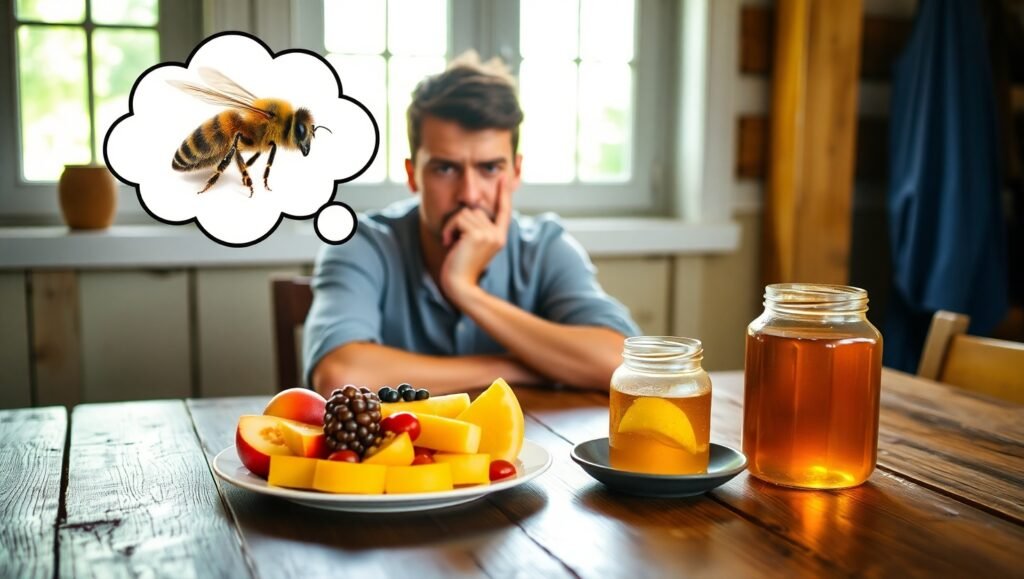
Should Vegans Eat Honey? Understanding the Ethical Debate
A lot of people wonder if honey should be added to diets of people practicing veganism. The debate itself is complex, encompassing ethical, environmental, and health considerations. In light of the growing popularity of the vegan movement, it’s essential to understand the role of honey in the vegan diet. Of course, this will be the focus of our reflection.
The Vegan Philosophy
Veganism is premised upon a rigorous commitment to exclude from one’s diet all substances derived from non-human animals and to reduce, to the fullest practicable extent, all forms of injury or death to sentient creatures. Consequently, the paradigm encompasses far more than the omission of meat, eggs, or milk; it proscribes any product fabricated through the exploitation of animal life. In evaluating the permissibility of honey, therefore, the inquiry should systematically interrogate the ramifications of its harvesting with respect to the cardinal obligation to abrogate animal suffering and to uphold the principle of non-exploitation.
Animal Welfare and Honey
Like all other creatures, bees have their distinct social structures, hierarchies, and ways of living. Harvesting honey, however, is said to interfere with their social systems and stress them. Among the main issues discussed, concerning bees’ welfare, the most pertinent to the social systems of bees include:
- Bee colonies may be disrupted during honey collection
- Bee culling and certain other beekeeping practices
- Commercial beekeeping often prioritizes honey production and profits over the health of their bees
All of these raise an ethical dilemma for the vegan community. Is honey vegan-friendly when the primary principle is to avoid causing suffering?
Environmental Considerations
As with many food products, honey, too, has an environmental side that needs consideration. Honey bees play a crucial role as pollinators of many crops. The symbiotic relationship of honey bees with the flora is of significance not just to honey bees, but to the whole ecosystem.
Commercial beekeeping may also have adverse environmental effects, such as:
- Overpopulation of bees in some regions, which causes loss of habitat.
- Harmful pesticides that are hazardous to bees and other pollinators.
- Bees face “transportation stress” when they are moved from location to location, a common practice in large scale honey production.
These possible disadvantages discussed above may leave environmentally-concerned vegans in a dilemma over honey consumption.
Health Considerations
On the other side of the coin, honey is an important food, and as such has benefits. For example, honey contains antioxidants, has antibacterial effects, and helps in easing a sore throat. Still, there are other issues to keep in mind, such as:
- Due to the fact that honey is rich in sugar, excessive consumption may lead to health complications.
- Honey sourced from unethical producers may not retain the benefits of pure honey.
Health-conscious vegans may opt for agave syrup or maple syrup, which are more suitable to their diet as compared to honey.
What Do Other Vegans Think?
Honey may be the most controversial vegan product in the vegan community:
- Some people think that when bees are treated ethically, then honey can be consider.
- Honey is Not Vegan: Some people believe that any use of animals by humans is unjustifiable.
Personal belief systems and individual values also play a major role in these views. Locating your position along this socio-ethical continuum clarifies the admissibility of consuming honey within your own dietary framework.
| Perspective | Reasons For | Reasons Against |
|---|---|---|
| Honey is Vegan | Ethical beekeeping standards; potential biodiversity benefits | Possible injury to colonies; debridement of insect agency |
| Honey is Not Vegan | Consistency with strict vegan doctrine; absence of animal exploitation | Organoleptic and medicinal virtues; gustatory appreciation |
Determining Your Position
Including honey in a vegan diet ultimately comes down to personal ethics and values. Considering your priorities, be it animal welfare, environmental impact, or health, will help you make a decision.
When you are not sure, you can experiment with alternatives. Natural sweeteners like agave, maple syrup, and coconut sugar may provide similar flavors without the ethical dilemmas associated with honey.
It is important to remember that being vegan is an individual experience, and what works for one person may not work for another. Educating yourself on the topic of honey and the consequences of it can help you make decisions that align with your values.
The Healthy Nutritional Value of Honey in a Vegan Diet
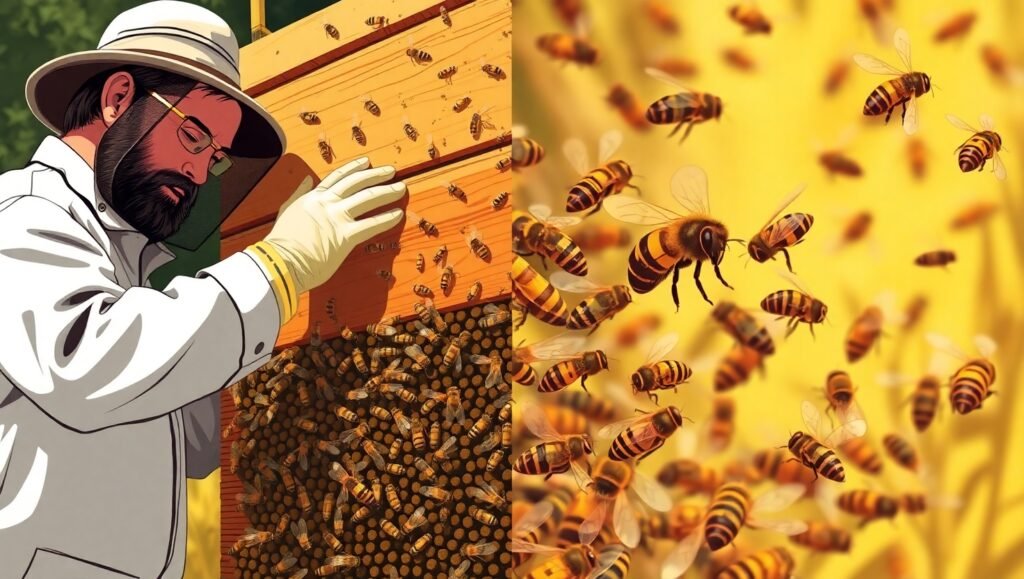
With the increasing number of people considering a vegan lifestyle, the question arises as to the nutritional content of different foods. Honey is a subject of conversation. To the vegans, the nutritional value of honey may assist you in making informed decisions regarding your dietary plan.
What is Nutritionally Unique about Honey?
Honey is a natural sweetener that is rich in nutrients. These are some of the main ingredients of honey that can be beneficial to your health:
- Antioxidants: Honey is rich in antioxidants, including flavonoids and phenolic acids, which can help combat free radicals in the body.
- Vitamins and Minerals: Honey is mostly sugar, but it also contains trace amounts of vitamins B6, C, calcium, iron, and magnesium, which are beneficial to health.
- Natural Energy Source: The carbohydrates in honey, mainly glucose and fructose, are a fast source of energy, which makes it an ideal choice as a natural energy booster.
The Energy and Recovery Role of Honey
If you have an active lifestyle, adding honey may help you meet your energy and recovery demands. Here’s how:
- Energy Boost: Honey is easily digestible and provides an instant energy boost which is useful before or after workouts.
- Glycogen Replenishment: Honey can be used to replenish glycogen stores after exercise.
Skin and Digestive Benefits
Beyond its energy-boosting effects, honey has properties that can support skin health and digestion:
- Antibacterial: Honey has natural antibacterial properties that can be used to promote healing when applied to the skin, which is why it is a common ingredient in skincare.
- Digestive Aid: Honey can help with digestion and alleviate the symptoms of digestive disorders because it is a prebiotic, which supports the health of the gut.
Comparing Nutritional Aspects
It is important to compare honey with other popular sweeteners in a vegan diet. The table below shows the nutritional differences
| Sweetener | Calories (per tablespoon) | Carbohydrates (g) | Vitamins & Minerals |
|---|---|---|---|
| Honey | 64 | 17.3 | Trace amounts of B vitamins, vitamin C, magnesium, potassium |
| Maple Syrup | 52 | 13.4 | Zinc, manganese, antioxidants |
| Aggave Nectar | 60 | 16.3 | Low vitamins and minerals |
Things to Keep in Mind as a Vegan
When you are thinking of including honey in your vegan diet, there are some factors to consider:
- Ethical Concerns: Some vegans avoid honey due to concerns about animal welfare and bee exploitation.
- Origin of Honey: When consuming honey, it is best to use raw and organic honey that focuses on sustainable beekeeping.
- Allergies and Sensitivities: Note that honey may cause allergies in some people, particularly those who are allergic to pollen.
Substitutes to Honey
Plant-based alternatives can also be used by those who do not want to use honey:
- Apples Syrup: This is a natural sweetener that has antioxidants and minerals.
- Agave Nectar: It has a low glycemic index, which makes it ideal to people who are monitoring their blood sugar levels.
- Date Syrup: This is a healthy alternative as it is rich in vitamins and minerals.
The final decision on whether to incorporate honey into your vegan diet is a matter of personal beliefs and dietary requirements. Knowing the nutritional advantages can assist you in making the right decisions
Substitutes to Honey: Vegan Sweeteners
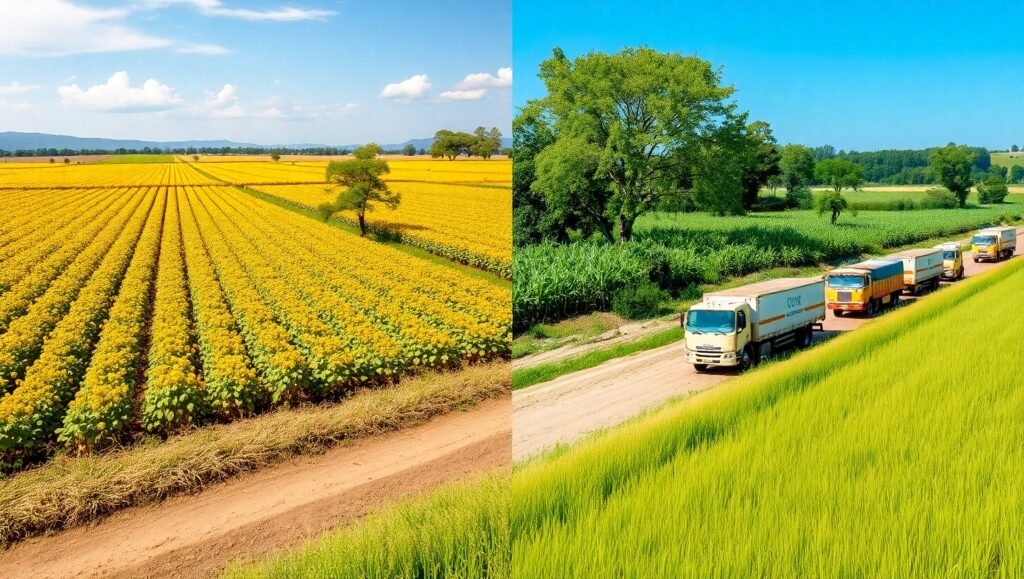
It is crucial to find a sweetener that fits a vegan lifestyle, and many people are looking to find plant-based alternatives. Although honey is a controversial topic among vegans, there are many alternatives to sweeten your food without sacrificing your morals. Here are some of the best alternatives to honey that can be incorporated into a vegan diet.
Maple Syrup
Apples syrup is a favorite among vegans. This is a natural sweetener that is extracted out of the sap of maple trees and is full of minerals and antioxidants. It has a unique taste that can be used to enhance various dishes.
- Nutritional Value: It contains manganese, zinc, and other antioxidants.
- Taste: Sweet with a hint of woodsy flavor, great in pancakes, waffles, and baking.
Agave Nectar
Another favorite among vegans is agave nectar It is extracted out of the agave plant and is sweeter than honey, which means that it can be used in recipes in smaller amounts. It is not too strong in flavor to overpower your dishes.
- Low Glycemic Index: Agave nectar has a very low glycemic index compared to many other sweeteners and is therefore a good choice when it comes to monitoring blood sugar levels.
- Add to: Smoothies, salad dressings, and desserts.
Coconut Nectar
Coconut nectar is a sap of coconut blossoms and is an excellent vegan alternative. It has a rich flavor that resembles caramel, which makes it a good option in savory and sweet dishes.
- Rich in Nutrients: It is rich in vitamins and minerals, especially amino acids.
- Flavor Profile: A distinctive, rich flavor that is ideal in baking and drizzling over foods.
Brown Rice Syrup
Brown rice syrup is not as sweet as honey and has a slight nutty taste. It is produced using fermented brown rice and is an excellent alternative to baking or as a topping.
- Consistency: Thick and sticky like honey.
- Consistency: Thick and sticky like honey.
Date Syrup
Date syrup is a fantastic option that comes from the whole fruit, providing natural sweetness along with fiber and nutrients. It is flavorful and rich, which makes it a good addition to both sweet and savory dishes.
- Health Benefits: Rich in antioxidants and good to digestive health.
- Taste: A sweet richness with caramel-like notes, ideal to drizzle over oatmeal or pancakes.
Fruit Purees
Fruit purees such as applesauce or mashed bananas can be used to add natural sweetness without the addition of sugars They are great in baking and as toppings.
- Fiber-Rich: Fruit purees are rich in fiber as opposed to traditional sweeteners.
- Flavor: Gives a fruity flavor, which is good in muffins, cakes, and smoothies.
Stevia
Stevia is a calorie-free substitute that is extracted out of the leaves of the stevia plant. It is very sweet, so a small amount goes a long way.
- Zero Calories: Suitable to people who are cutting down on sugar.
- Use: In coffee, tea, and baking, but note that it is very sweet.
Brown Sugar
Brown sugar is not a liquid alternative, but it can be used as a direct replacement in most recipes that require sweetness. It has molasses that adds moisture and flavor.
- Flavor: Has a rich, deep flavor that is ideal in cookies and sauces.
- Substitution: Use in equal amounts as honey or other sweeteners.
Molasses
Molasses is a by-product of sugar cane processing and has a strong flavor. It is high in iron and vital minerals, which makes it a nutritious choice.
- Nutritional Value: High in calcium, magnesium, and antioxidants.
- Flavor: Strong and slightly bitter, it is good in gingerbread, marinades, and glazes.
Vegans have a great variety of tasty honey substitutes. Both options have their own flavor and nutritional value, which makes them perfect to sweeten various dishes. Select the one that suits your taste and dietary requirements the most, and have fun trying out these sweet alternatives!
Environmental Effects of Honey Production
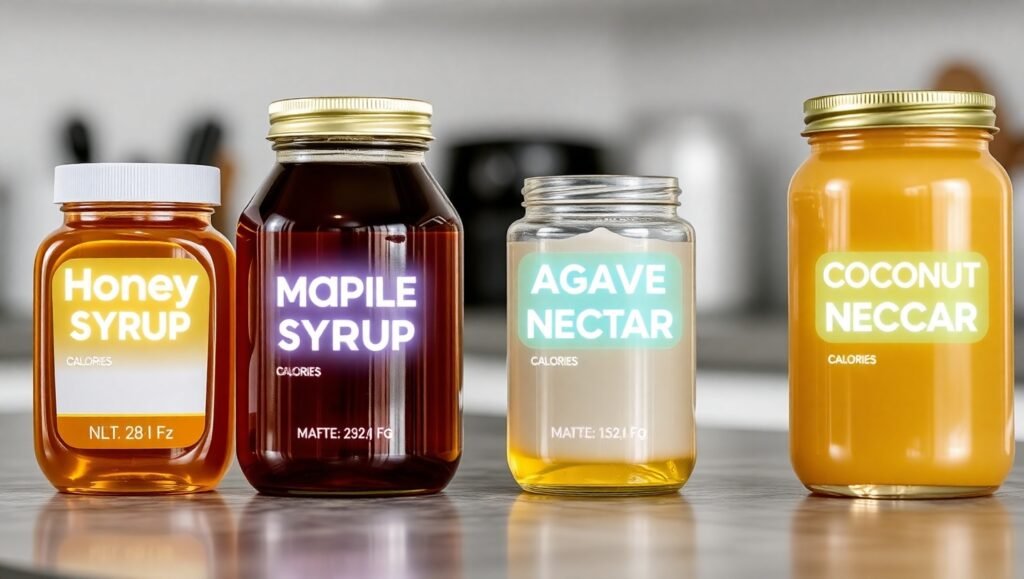
The process of honey production is not only the activity of bees but also a series of environmental consequences that should be taken into account. With the increasing number of people who are opting to use honey as a sweetener or as a source of health benefits, it is important to know the environmental effects of honey production. The impacts are varied, including the ecological role of bees and the farming practices of beekeeping.
Among the greatest advantages of honey production is its relation to the well-being of bee populations. Bees are important in pollinating plants, which is essential in the growth of many crops. By keeping healthy hives, beekeepers help the greater ecosystem. Healthy bees guarantee the pollination of fruits, vegetables, and flowers. Here are some of the main points regarding the positive effects:
- Pollination Services: Bees pollinate about a third of the food we consume. This consists of vital fruits, vegetables, and nuts.
- Biodiversity Support: Bees contribute to biodiversity in the ecosystems by pollinating different plant species.
- Sustainable Agriculture: Beekeeping can increase crop yields, making farming practices more sustainable.
Although there are advantages, honey production also poses concerns that cannot be ignored. As an example, commercial beekeeping may occasionally cause ecological imbalances. The environmental impact is influenced by the following factors:
- Monoculture Plantations: Beekeepers tend to locate hives in monoculture crop areas. This may restrict the variety of pollen sources to bees and their health.
- Pesticide Use: Pesticides used in farming activities may be detrimental to bees. Some chemicals can change bee behavior, reproduction, and even colony survival even in small doses.
- Habitat Loss: Beekeeping can cause the modification or destruction of natural habitats, which affects local wildlife and plant species.
The other aspect to note is the water consumption in honey production. Beekeeping needs water, both to the bees and to the equipment used in honey harvesting. In addition, intensive beekeeping regions may be water-stressed, which may affect local biodiversity. Nevertheless, beekeepers can adopt measures that reduce water consumption and safeguarding of local water bodies.
In a global view of honey production, various regions practice different types of activities. Certain conventional and sustainable practices are more eco-friendly than industrial ones. Here is a comparative look:
| Type of Honey Production | Environmental Impact |
|---|---|
| Traditional Beekeeping | Conventional Beekeeping Does not harm local ecosystems and does not need intensive farming. |
| Commercial Beekeeping | Commercial Beekeeping Commercial beekeeping is often dependent on monocultures and pesticides, which may be harmful to bee populations. |
| Organic Honey Production | Follows strict guidelines, promoting natural biodiversity and healthier bee populations. |
Moreover, a lot of beekeepers are currently implementing sustainable practices that focus on the health of bees and the environment. Such practices can reduce some of the adverse effects of honey production. Here are some examples:
- Integrated Pest Management: This is a strategy that aims at reducing the use of pesticides by increasing the use of natural pest control.
- Varied Planting: Planting a variety of crops promotes a variety of sources of nectar and pollen, which is beneficial to the health of bees.
- Education and Community Engagement: Education on beekeeping and environmental stewardship can be shared to promote better practices in the local communities.
The environmental impact of honey production is a complex topic that encompasses both advantages and disadvantages. Understanding these elements allows consumers to make informed choices about the honey they buy and supports sustainable beekeeping practices that promote bee health and biodiversity. With increased awareness, more people will demand honey that is produced in an environmentally responsible manner, which will help create a more sustainable future.
Personal Stories: Vegans Who Include Honey
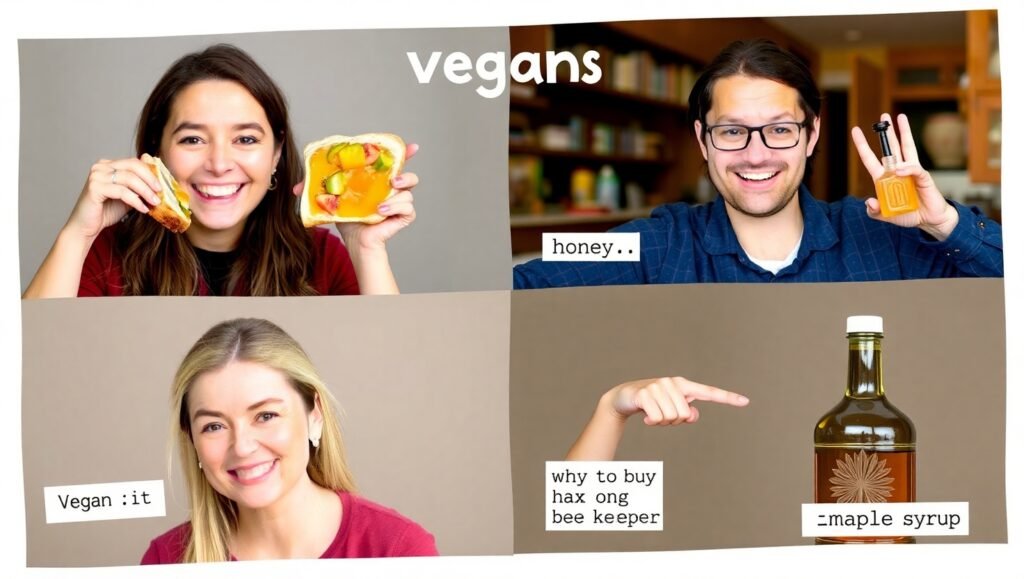
The question of whether vegans should consume honey or not has been a subject of debate in recent years among individuals who are dedicated to plant-based lifestyles. The decision is a struggle that many people face after reading about how honey is produced and what it means to animal rights and the environment. The following are some personal accounts of vegans who have decided to consume honey in their diets, providing an insight into their reasoning and ideologies.
Sarah is a young vegan who has been practicing a plant-based diet more than five years. She did not use honey initially because of the general perception that it is incompatible with veganism. However, after learning about sustainable beekeeping and the role of bees in the ecosystem, Sarah changed her mind. She frequently prefers honey that is produced by local, organic beekeepers who are concerned about the health of their bees. She found out that beekeeping can be employed to maintain bee populations rather than killing them when it is done ethically. When I discovered a source of honey that fits my values, it felt right to incorporate it into my diet.
On the one hand, we have Mark, who is now a vegan but used to eat honey. Mark had an interesting twist in his journey when he attended a community event that was aimed at environmental conservation. He listened to an impassioned speech by a local beekeeper who described how honey production can have a positive effect on the environment. The information about the usefulness of bees and the role of honeybees in pollination altered my perception. I learned that ethical honey can even help local farming and biodiversity,” Mark says. He now prefers to use honey that he is sure is produced by responsible sources.
The other voice in this discussion is Emma, a long-term vegan who is opposed to the consumption of honey. Emma feels that any use of animals, even in sustainable practices, is against her ethics. Although I respect the people who advocate ethical beekeeping, I prefer not to consume honey at all. To me, being a true vegan means not consuming any animal products, no matter the source of the product,” she says. The unwavering attitude of Emma is a reminder that the vegan community is not homogenous, and there are different interpretations of what a vegan diet should be.
In other conversations, one can come across remarks that are similar to those of Emma, that any animal product is not compatible with the vegan lifestyle. Nevertheless, there are also numerous supporters of a more moderate position, who think that it is possible to combine responsible beekeeping with veganism. To further discuss these perspectives, the following is a comparison:
| Viewpoint | Pros | Cons |
|---|---|---|
| Include Honey | Supports local economies and sustainable practicesProvides potential health benefits | May compromise strict vegan ethicsPossible harm to bees during harvesting |
| Avoid Honey | Sticks to a strict vegan lifestyleAvoids any animal exploitation | Misses out on local, sustainably sourced productsMay forgo potential health benefits from honey |
Another interesting story is that of Jake, a practical vegan who takes into consideration his health and local agriculture. Jake tested his diet on allergies and discovered that honey was a natural sweetener that did not affect his body negatively. I have heard about local honey and allergies, and I can contribute to my community by purchasing it. It is a win-win, he says excitedly. Jake points out that anyone thinking of honey should do their due diligence on the sourcing to make sure it fits their ethical standards.
Ultimately, the examples of Sarah, Mark, Emma, and Jake show that the vegan community has a variety of opinions regarding the consumption of honey. People design their food habits in a manner that is significant to them, whether it is driven by ethics, health, or environmental awareness. The realization that there is no universal solution to the question of what it means to be vegan in the modern world enables a more comprehensive view of the issue.
Conclusion
Whether vegans should consume honey or not depends on personal beliefs and values. It is important to understand the ethical controversy that exists around honey because many vegans avoid it because of the bee welfare and exploitation issues. Nevertheless, honey has nutritional value, as it contains natural sugars and antioxidants that can supplement a vegan diet.
To the people who want to remain vegan, there are other options, including agave nectar, maple syrup, or coconut nectar, which can be used to satisfy sweet cravings without the moral conflict. It is also important to be aware of the environmental impact of honey production; some of the practices may be harmful to the local bee populations and ecosystems, whereas others aim to be sustainable.
The personal accounts of vegans who incorporate honey into their lives show that this decision is usually based on a stronger connection to nature and the wish to help local beekeepers. These stories demonstrate the variety of the vegan community and remind us that being vegan can be different.
The choice of whether to include honey in a vegan diet is yours to make. Regardless of whether you prefer honey or alternatives, you should make a choice that best suits your ethics, nutritional requirements, and environmental considerations. Be informed, network with others who share your values, and be willing to learn more about the complicated connection between food choices and values. Your experience as a vegan is yours, and being conscious of these factors can assist you in making choices and living a balanced, mindful life.